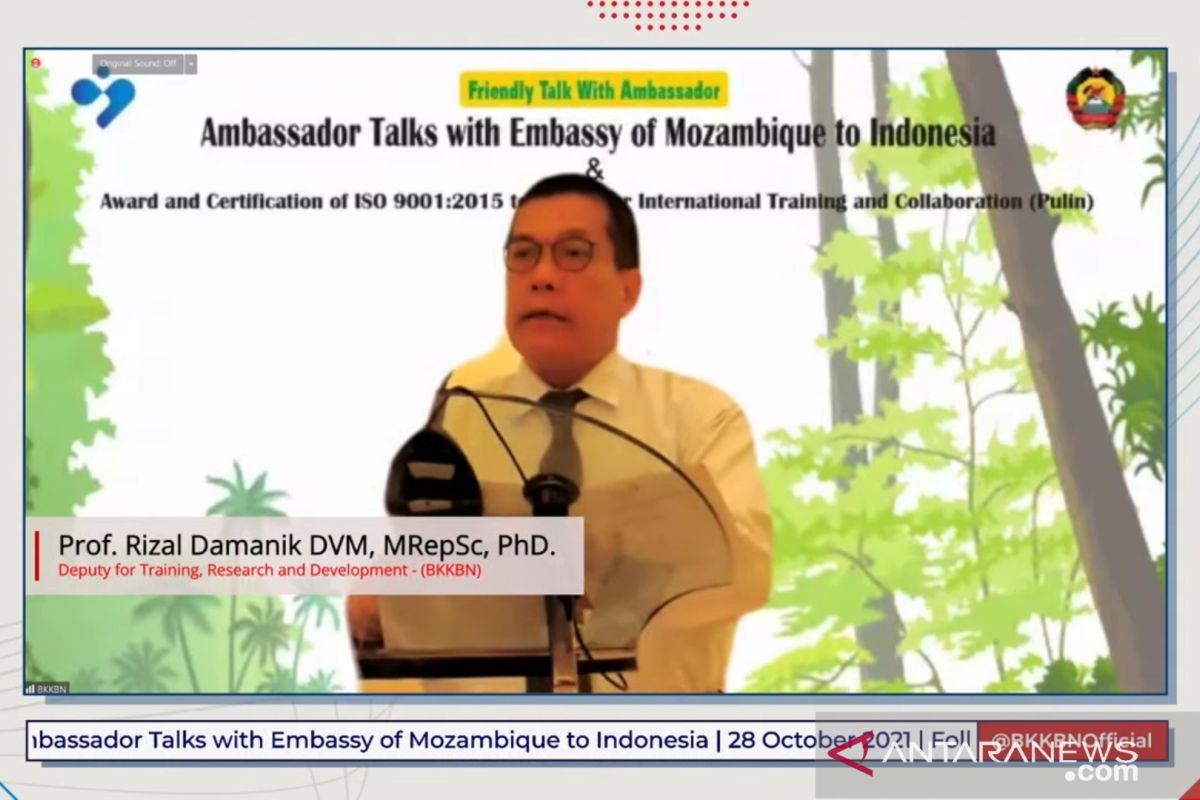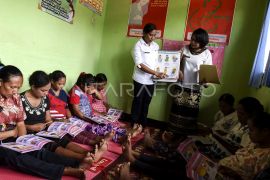"Ensuring proper nutrition is the key to optimizing the health of girls, pregnant women, breastfeeding mothers, and newborns," Deputy for Training, Research, and Development of BKKBN, Muhammad Rizal Martua Damanik, stated during the Ambassador Talks webinar with the Mozambique Embassy to Indonesia on Thursday.
Damanik noted that the prevalence rate of stunting in Indonesia continued to decline, from 37.2 percent in 2013 to 27.7 percent in 2019.
Nevertheless, the stunting problem will be the prime focus of the government for the development of human resources, according to the 2020-2024 National Mid-term Development Plan (RPJMN).
Damanik later highlighted that stunting impacted the quality of human resources that may cause health losses. Hence, it has become a fundamental task of a country to solve these problems.
With Presidential Regulation Number 72 of 2021 on the acceleration of stunting reduction in place, the government has set a stunting rate target of 14 percent in 2024. This regulation reflects the government's commitment to improving the quality of life in the community, Damanik stated.
The BKKBN has been applying various interventional approaches, both specific and sensitive, in order to prevent stunting among newborns and also to suppress the cases of premature birth.
Damanik noted that achieving this target was no easy task. Through the collaboration, the government expects to achieve a stunting rate of 14 percent by 2024.
“Collaboration and support from international partners are needed to achieve our target in 2024. The BKKBN will receive all support for the sake of our community," he remarked.
Related news: Indonesia redoubles efforts to reduce childhood stunting
Meanwhile, Mozambique Ambassador to Indonesia, Belmiro Jose Malate, stated that the number of pregnancies at a young age in Mozambique was still quite high.
Malete attributed the high rate of pregnancy at a young age to the low use of contraceptives as well as the tradition of marrying off women at a young age and having many children.
“Mozambique is one of the South African countries, with the lowest contraceptive prevalence of only 25 percent,” he added.
The use of modern contraceptives among adolescents aged 15 to 19 years is quite low, reaching only 14.1 percent, while that among people in the age group of 20 to 24 years reached 26.3 percent.
One in two deaths in Mozambican women aged 15 to 24 years was closely related to pregnancy, giving birth, and abortion.
Taking into account the minimal use of contraception as well as the large number of maternal deaths at a young age in his country, Malete hopes that the collaboration with BKKBN would increase support, awareness, and education about sexual and reproductive health issues in the young age group.
Hopes are also pinned high on an increase in the provision of sexual and reproductive health services, especially during the COVID-19 pandemic while increasing interest in using contraception and family planning (KB) programs in the community.
“Family planning ensures quality of life," he added.
Related news: Collaboration between govt, parties key to handling stunting
Related news: Stunting involves maternal, infant mortality: BKKBN
Translator: Hreeloita D, Resinta S
Editor: Suharto
Copyright © ANTARA 2021












